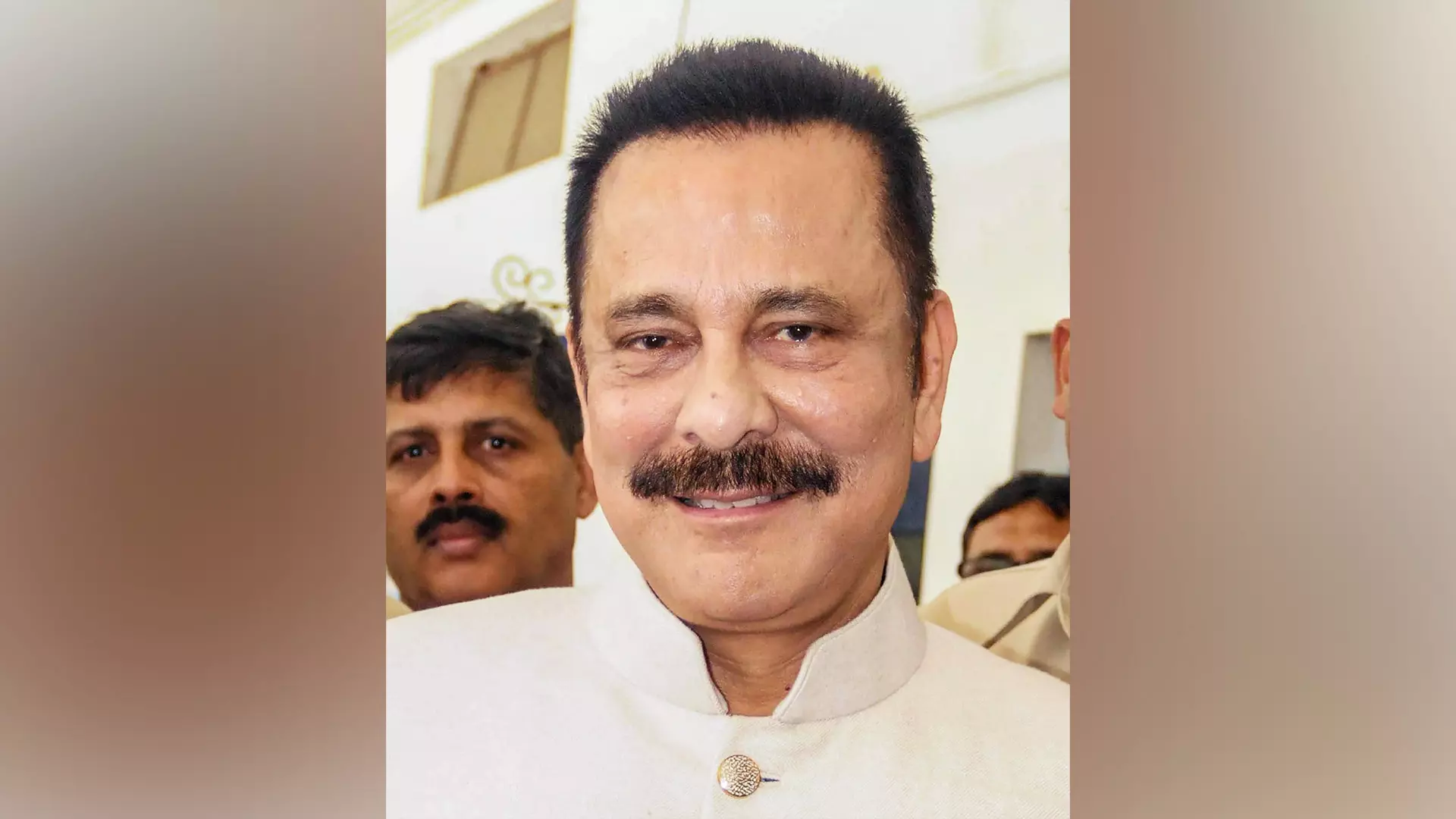
Subrata Roy obituary: Sahara founder leaves behind complex legacy
His alleged involvement in financial misconduct concealed his business accomplishments; his name became synonymous with a major financial scandal

Subrata Roy, the enigmatic and controversial founder of Sahara India Pariwar, who passed away Tuesday night at the age of 75 after suffering a cardiorespiratory arrest, was known for his ambitious undertakings, glamour and quixotic attitude, leaving behind a complex legacy in the Indian corporate world.
Born on June 10, 1948 at Araria in Bihar, Roy rose to fame through his banking and real estate business, Sahara. His economic empire, valued at Rs 65,000 crore with assets reaching Rs 1.5 lakh crore, was as extensive as it was troublesome, embracing industries ranging from chit funds to airlines.
Roy’s career was defined by eccentricity and unusual administrative practices, which generated analogies to the American entrepreneur Howard Hughes. His leadership style was characterised by anomalies verging on the strange, such as the ‘Sahara pranam’ salute, extended speeches to employees and tight dress rules.
These practices were part of Roy’s business culture but mirrored his dictatorial managerial style. He placed rigorous and one-of-a-kind rules on his crew, whom he termed “Sahara Parivar.” He insisted on them attending his lengthy speeches, which sometimes lasted up to 24 hours.
Sahara salute
In addition, Roy instituted a unique greeting among staff members known as the “Sahara pranam salute,” which required placing one’s palm on one’s chest to display mutual respect. Non-compliance with this practice was treated as a disciplinary infraction.
The company’s attire code was severely enforced as well. Employees were compelled to wear the official Sahara uniform on Saturdays, which featured a white shirt, black slacks and a tie with the company’s symbol. The adherence to this attire requirement was severely enforced.
Senior management authorities frequently stood near the entrance, ensuring employees wore white socks. Failure to observe the dress code would result in a 10 per cent penalty from the employee’s monthly salary.
This level of discipline also extended to other aspects; for example, motorcyclists entering corporate premises were expected to wear helmets, and failure to comply resulted in comparable consequences. Employees were also invited to take a test based on Roy’s book. Those who passed this exam had a monthly pay increase of Rs 500.
His alleged involvement in financial misconduct, however, concealed his business accomplishments. Roy’s name became synonymous with one of India’s most serious financial scandals.
The scandal
A whistleblower called Roshan Lal, who wrote a letter about certain financial dealings of Sahara India, prompted the Securities and Exchange Board of India (SEBI) to investigate the group. This inquiry revealed "various illegalities" in the group's raising over Rs 24,000 crore from more than three crore investors, consisting of street-side vendors, auto-rickshaw drivers and small investors.
The SEBI case against him was based on allegations of financial irregularities in the raising of funds through Optionally Fully Convertible Debentures (OFCDs), which allow investors to choose between remaining a creditor to the company and earning interest or converting the debentures into equity shares and potentially benefiting from the company’s growth and profitability.
The undistributed funds of about Rs 25,000 crore are still with the SEBI, and how they will get returned to the aggrieved investors remains to be seen.
Roy’s interactions with regulatory officials were equally exciting. In one notable incident, he dispatched 127 vehicles loaded with documents to the SEBI office, causing a major traffic delay in Mumbai. This was his outrageous defiance and uncommon reaction to legal scrutiny.
Despite these controversies, Roy’s influence grew to include high-profile figures such as celebrities and politicians, emphasising his multifaceted persona. A well-known film star benefited much from his generosity in saving him from near bankruptcy.
Air Sahara
His official residence-cum-office, the 200-acre Sahara Shehar in Lucknow, reflected his luxurious lifestyle and served as the setting for spectacular employee initiation ceremonies.
One of his commercial interests, Air Sahara, was put up for sale, and Naresh Goyal’s Jet Airways eventually purchased it after a fierce battle with Vijay Mallya’s Kingfisher Airlines, which withdrew its bid at the last minute. Because Jet Airways was the sole contender, it was required to acquire Air Sahara.
Several obstacles occurred, including price differences and legal complications. The initial agreement fell through in June 2006, resulting in a legal dispute between the two corporations. This disagreement was mostly over Jet Airways’s advance payment to Sahara and whether it should be refunded in light of the deal’s failure.
In the end, the acquisition was completed in April 2007 for a reduced price of roughly $340 million, much less than the initially agreed-upon value of $500 million. Air Sahara was renamed JetLite after the takeover. According to analysts, the acquisition finally led to Jet Airways’ demise since its full-service airline business model did not make economic sense compared to Air Sahara, a low-cost airline.
Subrata Roy’s life was an enigma of ambition and creativity, and among his severest critics was a former civil servant and former SEBI official, K M Abraham, who wrote a series of letters to the PMO seeking its intervention in the Sahara case. Roy's death closes a period in the Indian corporate sector marked by grandeur and ignominy.

